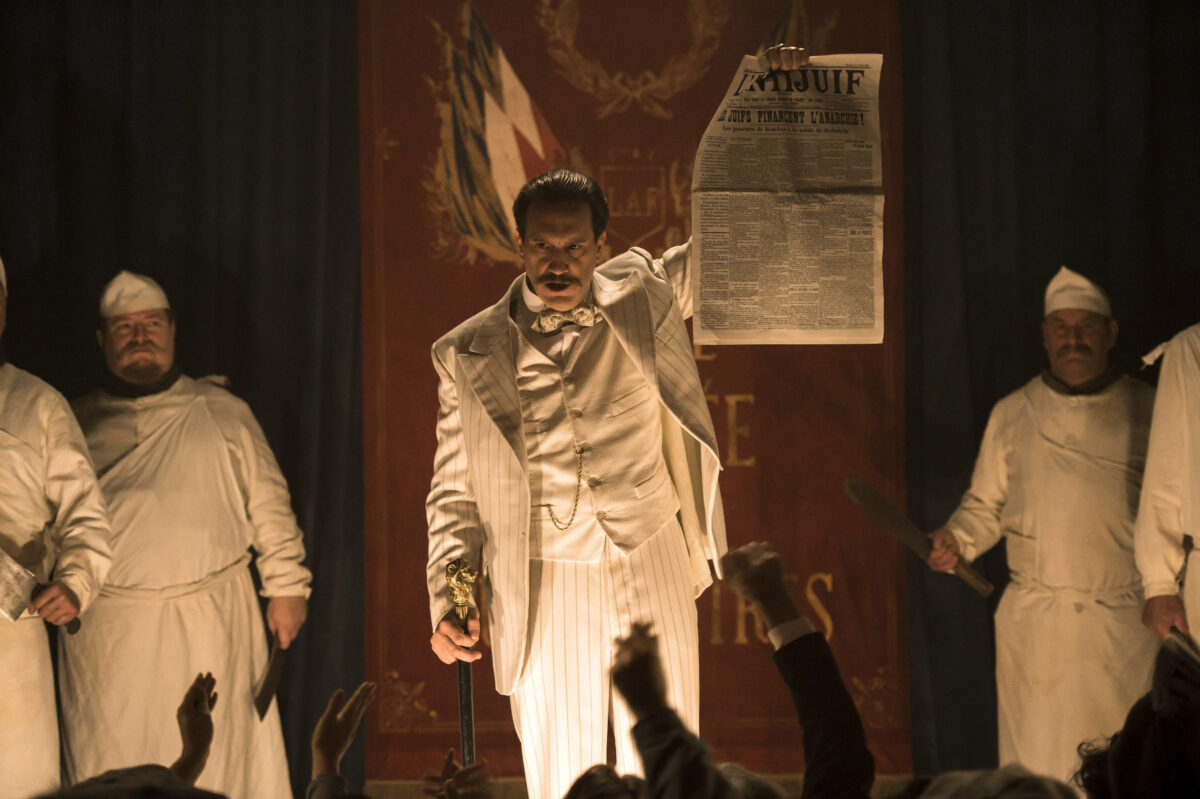Fabian Nury’s Paris Police 1900 is set against the backdrop of the sensational Dreyfus affair, which split France down the middle in the late 19th and early 20th centuries. A moody police procedural and a taut political drama, it will be available in Canada and the United States on the MHz Choice streaming platform on September 20.
This lush French television production, which unfolds in eight episodes, begins on a blatant sexual note as French President Felix Faure (Olivier Pajot) is being pleasured by his mistress, Marguerite Steinheil (Evelyne Brochu), the wife of a painter. Incredibly enough, even as she performs fellatio on him, Faure is fixated on Dreyfus, the French Jewish army officer who was unjustly charged with spying for Germany and imprisoned on Devil’s Island. “Dreyfus, that man is a pain in the ass,” Faure exclaims as he reaches climax.
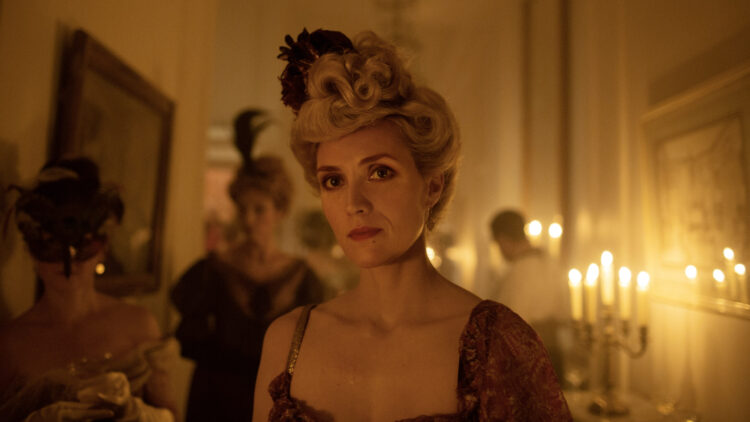
“Is he a spy?” he goes on to say. “How should I know? He didn’t have the grace to die on that island.”
A French court has ruled that Dreyfus should be brought back to France from South American and given a new trial to determine his innocence or guilt. The verdict has polarized France again. Right-wing nationalists and royalists spew antisemitic rhetoric. Dreyfus’s defenders are certain he is innocent and will be exonerated.
In one of the first scenes, a newsboy hawking a French newspaper that supports Dreyfus is physically attacked by a ruffian who despises Dreyfus.
With tensions rising, the Paris police department prepares for street unrest. But first a new commissioner must be chosen. The most promising candidate is Louis Lepine (Marc Barbe), a veteran of the force who seems to be apolitical.
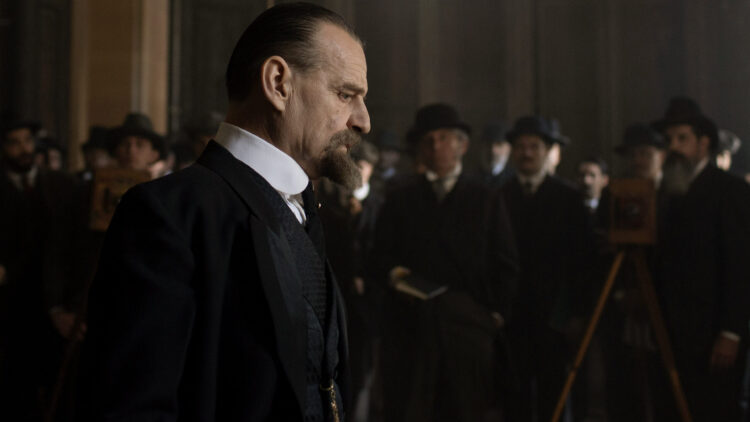
Paris, meanwhile, is boiling over with antisemitism.
Jules Guerin (Hubert Delattre), an antisemitic agitator whose family owns a large abattoir, appears at a rally and delivers a stinging tirade against Dreyfus, whom he likens to a pig. As he slits its throat, he warns Jews that this is the fate that awaits them. “Rip them apart,” he roars. “Bleed them and finally hang them in the butcher’s window.”
In a parting shot, he shouts, “Death to the Jews!”
As these events transpire, a woman’s torso turns up in a valise in the Seine River. She is one of three women who have lately disappeared without a trace. The police launch an investigation. Antoine Jouin (Jeremie Laheurte), a young inspector, is assigned to the case.
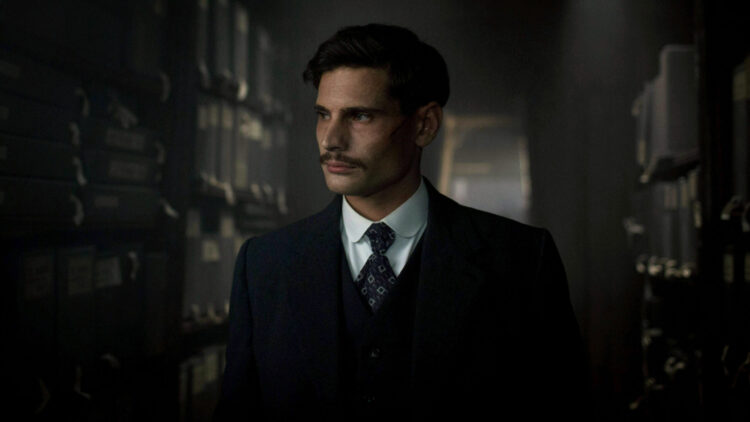
In the meantime, Steinheil is pressed into service by the police as a spy to monitor Guerin’s Antisemitc League.
Edouard Drumont (Eddie Chignara), a prominent anti-Jewish propagandist and Guerin’s associate, appears an another rally. In a fiery speech, he claims that Jews are “trampling” the French flag and humiliating and dividing France.
As the political temperature rises, anarchists and antisemites clash, raising fears that the country is heading toward revolutionary chaos and upheaval.
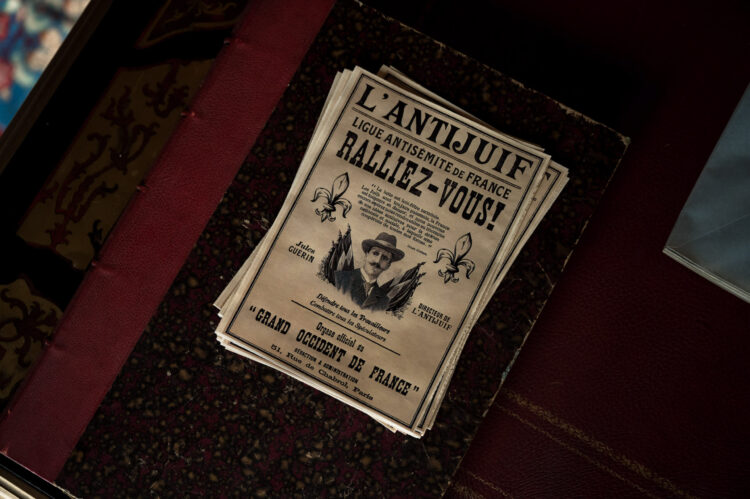
Nury’s period piece skillfully recreates the temper of the times as well as the deep class divisions of Belle Epoch France. As a group of wealthy women enjoy the benefits of a recreational drug, impoverished Parisians line up at a slaughter house for a free cup of cattle blood.
The second episode ends as the Antisemitic League accuses Jews of having murdered Faure, alerting viewers to yet more twists and turns in the convoluted Dreyfus affair.
